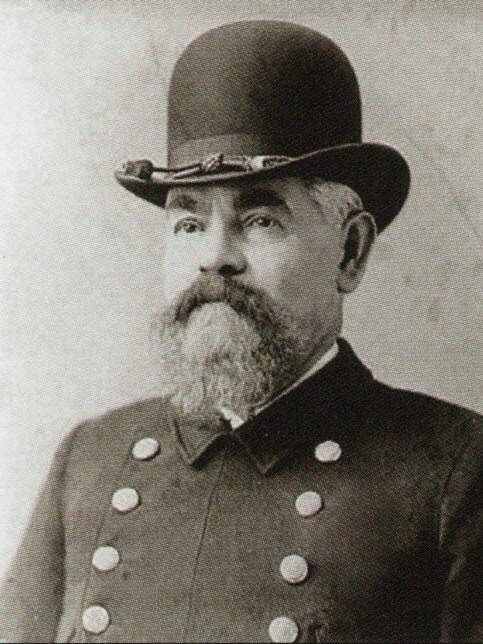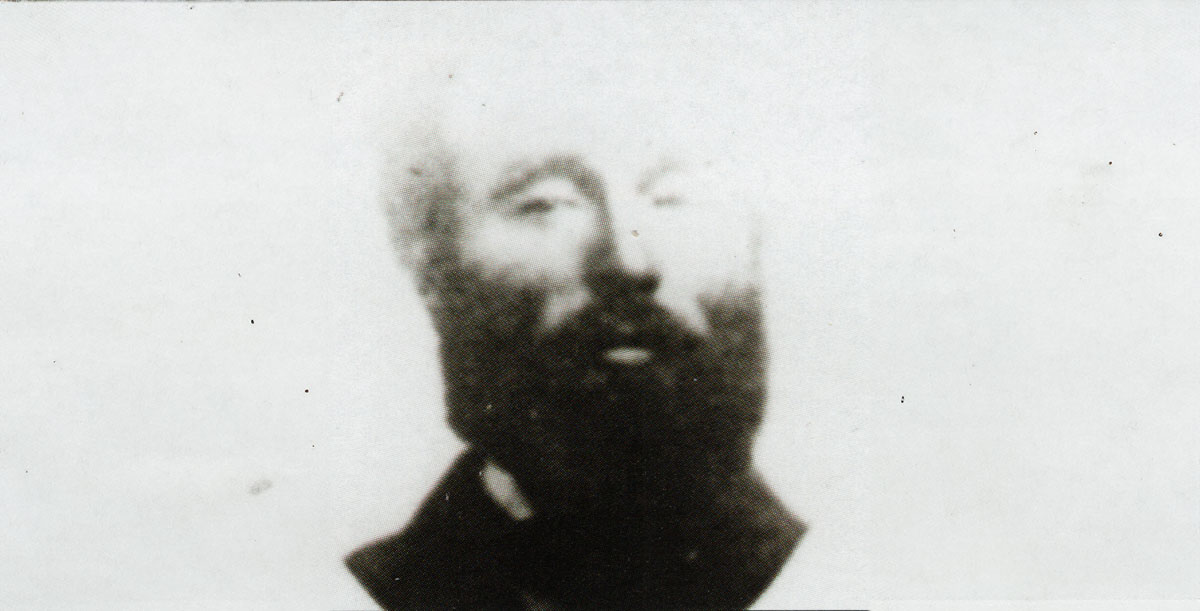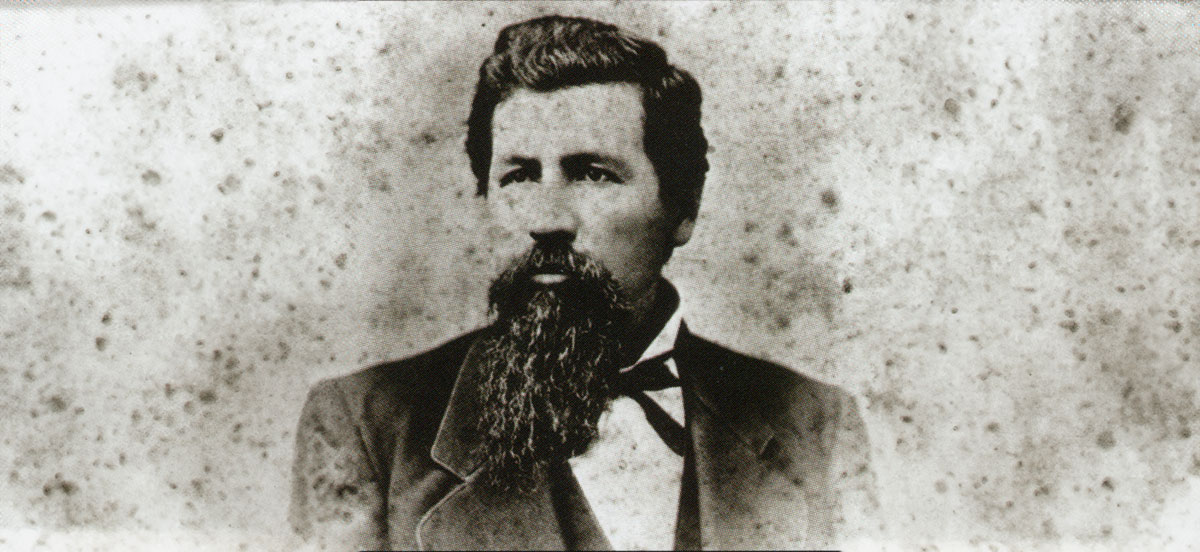Joseph Stephen Coyne was born in Cleveland, Ohio on 18 December 1837.
His father Patrick died when Joseph was 3, leaving his mother Ann as the head of the family.
At age fifteen, Coyne came west and found work as a miner in Northern California. He is believed to have made a few fortunes in gold mining, but then lost as many in card games.
In 1870 Coyne arrived in San Diego County to work in the gold mines of the mountain town of Julian.
After enjoying several good years in Julian, he sold his share of the operation for $50,000 and moved 60 miles west to San Diego where he was elected sheriff in 1876. His election made him the first Republican to ever serve as county sheriff in the then partisan office and he served three two-year terms.
In 875, former Sheriff James McCoy retired from his term in the California State Senate and returned to San Diego to run for Sheriff. Joseph Coyne,54 a former miner, ran on the Republican ticket. McCoy, seasoned in the art of politics by fifteen years service, represented the Democrats. The newspaper predicted that “much bloodshedding will be done.” Though McCoy had local supporters in San Diego, the town of Julian ultimately determined the victor.
In Democratic territory, the Republicans wisely nominated one of the town favorites, Joseph Coyne, in the hope that the loyal citizens would vote Republican. The ploy worked. While McCoy campaigned in Julian, all the local saloons but one dispensed free liquor in the name of Coyne. McCoy returned some sixty miles back to San Diego on the eve of the election to vote. A Coyne supporter took over the one saloon that favored McCoy and free spirits mellowed voters who had not decided on their choice for future sheriff.
The McCoy supporters were lined up at the bar and boozed up until they were past navigating, then they were hustled out to Drew Bailey’s barn and a trusty guard put over them. When they woke up the next morning they were “spitting cotton”. They were given a Coyne ballot, marched up to the polls and told to vote it before they got a drink or breakfast.
Whatever the truth of that story, McCoy lost the election for sheriff by a vote of 915 to 657.
Coyne took the role of lawman very seriously and led many hunts into the backcountry to seek out fugitives with his deputy, Ned Bushyhead who would also later serve as both Sheriff and Chief of Police.
In midsummer of the unhappy year of 1877 a wave of rioting swept the state and many Chinese lost their lives. Chinese fishing villages dotted the coast and their strangely rigged junks were a familiar sight at San Diego. In San Diego, it became evident in 1877 that outbreaks against the Chinese were only a matter of time, and The San Diego Union reported:
“It was ascertained that an agreement in writing had been in circulation for two days past, pledging the signers to join in ridding the city of Chinese, and persons refusing to sign were threatened…in one instance, we are informed, a man who declined to sign was assaulted.”
An attempt was made to burn down the Chinese quarter along the waterfront. Several buildings were saturated with gasoline and set afire, but the flames were quickly extinguished by volunteer fire fighters. Sheriff Joseph Coyne appointed a number of special deputies and a meeting of citizens was called to organize a Committee on Public Safety, and D.O. McCarthy, president of the Board of Trustees, telegraphed the commanding general of the Army’s Pacific Division requesting that arms at the barracks be issued to the committee’s 200 members. A. H. Gilbert was chosen chairman and officers were appointed for each ward. The San Diego Union said “The Chinese may not be, in any considerable number, a desirable element of the population. But those that are here are under the protection of the laws and must not be molested…here in San Diego we do not mean to permit hoodlumism and rioting…”
The distribution of Army weapons was approved and the full committee marched to the barracks to receive their breech-loading rifles and cavalry revolvers. Its members took up assigned posts and apparently remained on the alert until the threats of rioting had subsided.
In 1885 Coyne was appointed City Marshal for San Diego. He was allotted 24 deputies and an assistant. In 1887 he was re-elected, this time under the title of Chief of Police. This despite the City Marshals office was not a municipal police agency.
Coyne’s hiring was on May 14, 1889, with his certificate of election filed on May 16th, officially making him the first member of the SDPD. Coyne served as chief until May 27, 1891, when, on a 3-1 vote, the police commission elected William H. Crawford as his replacement. (One vote was cast for someone else) Now out of a job, Coyne was forced to hand over the department he helped create to someone else.
In 1893 Coyne took a job as a Deputy under Sheriff Ben Hill and was soon thereafter appointed a night watchman in the county courthouse. The job only lasted a year before he retired and moved his family to San Francisco. After a three-year illness, Coyne died of a heart attack in San Francisco on February 5, 1916, at the age of 78.
More information on Joseph Coyne and his role with the San Diego Police Department is available at the San Diego Police Museum website, at http://www.sdpolicemuseum.com/coyne.html .




